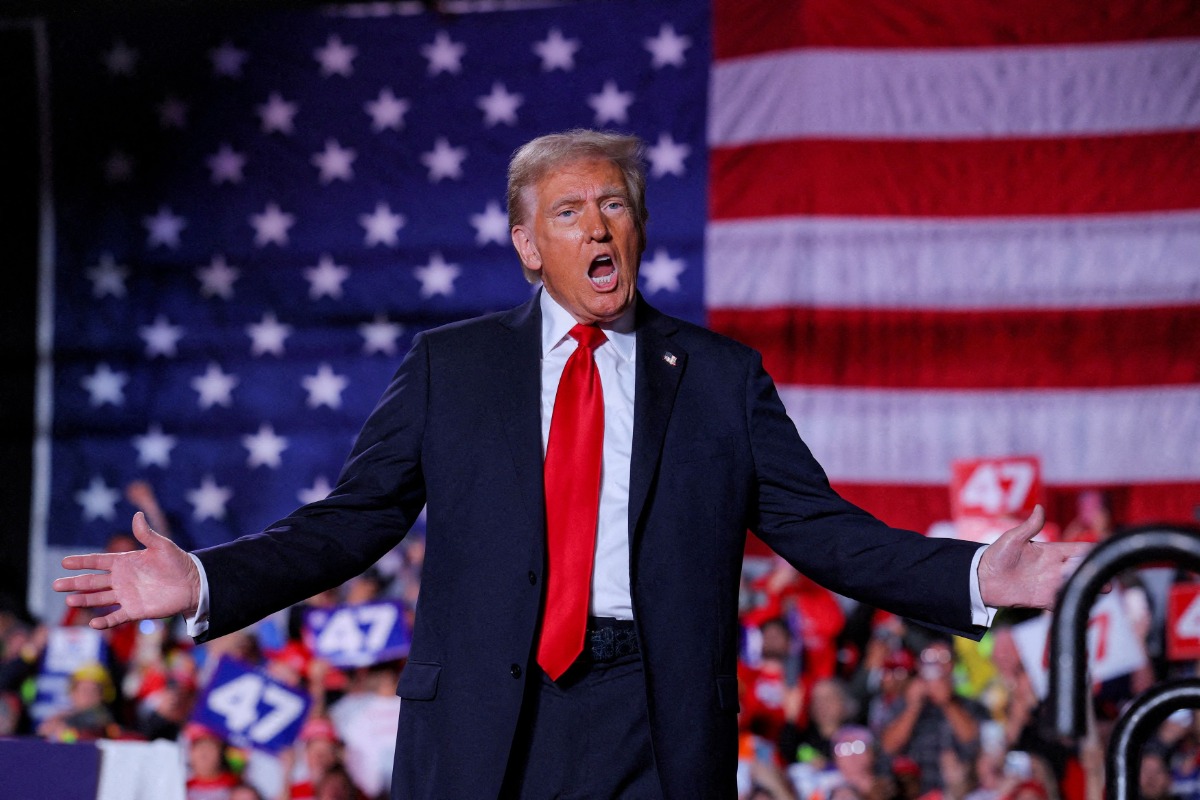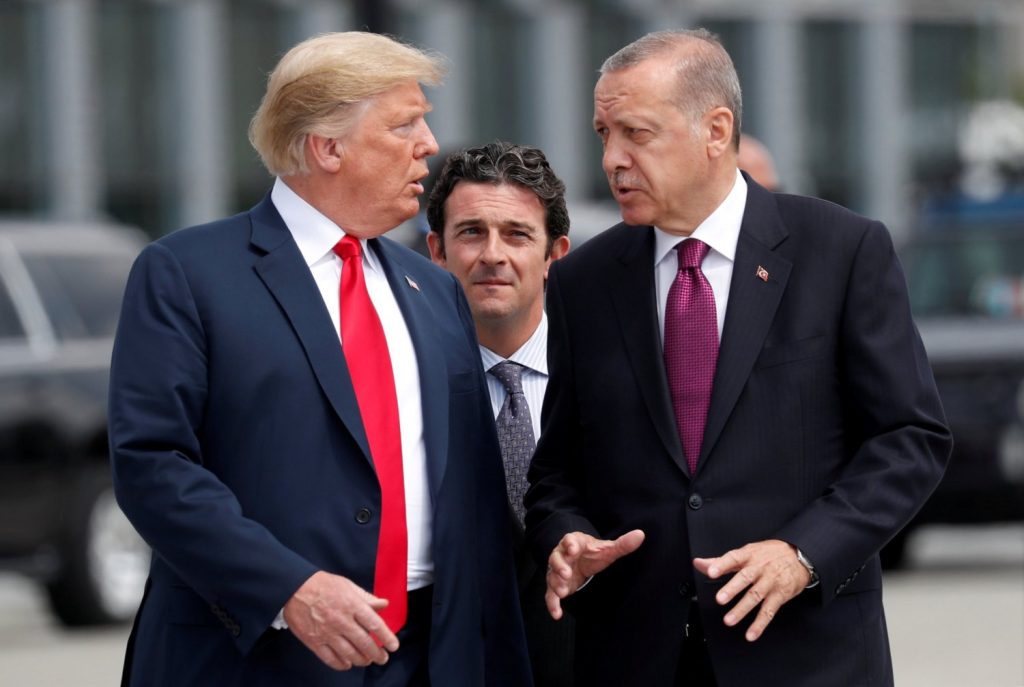The environmental issue has never concerned Donald Trump, and everything shows that even now that he is once again becoming president at the age of 78, he will not wonder what kind of world he will hand over to his children and grandchildren. His pre-election slogan was “hole baby, hole”, meaning of course the drilling rig, while in recent months in his speeches he has spoken of “green fraud” describing climate change as a “hoax”. Understandably, his return to the White House has sparked fears in the international community of an imminent setback in the effort to address the climate crisis.
Trump out of the Climate Agreement
Trump first promised to pull out of the 2015 Paris Agreement (COP 15) again, withdrawing the United States from its commitment to reduce carbon dioxide emissions, as he did in 2017 during his first term. and other pollutants that contribute to the climate crisis, in order to limit the increase in global temperature below 2°C.
“Just days before the start of the COP 29 Climate Conference in Baku, Azerbaijan, Trump’s victory sent shivers down our spines,” writes Anne Fetz in Les Echos. According to the economist Laurence Tibiana, who is considered an architect of the Paris Agreement, “political developments in the US are a setback for global climate action.” The work of COP 29 started on Monday, November 11 and will last until the 22nd of the month.
Trump and the 4 billion tons of CO2
It seems that the environmental footprint of Trump’s second term will be heavy. According to a study published on the specialist website Carbon Brief, the next president’s policies will add an additional 4 billion tons of carbon dioxide emissions by 2030 from the United States, a country that is already the world’s second largest polluter after China.
The “Les Echos” reporter even notes that, according to some rumors, the next president intends to go even further and withdraw the US from the United Nations Framework Convention on Climate Change. Such a decision would accelerate the environmental regression that the new four-year Trump term will bring. “However, withdrawing from the UN Framework Convention appears to be a more complex issue from a legal point of view,” climate action network (RAC) head of international policy Gaia Febre told the French newspaper.
Donald Trump: “Hole, baby, hole”
A staunch supporter of fossil fuels, Donald Trump is expected to once again favor the exploitation of US oil and gas fields in his second term in the name of the country’s “energy independence”. According to the “New York Times”, Trump has been promising this for several months to oil tycoons in exchange for them to proceed with sponsorships of one billion. dollars for his election campaign.
However, in addition to the more intensive exploitation of traditional oil and natural gas fields, experts believe that Trump’s energy policy will also favor the exploitation of shale hydrocarbon deposits, which are extracted with the environmentally burdensome method of hydraulic fracturing.
Anti-scientific revisionism
During his first term, Trump de-designated vast conservation lands in Utah State, relaxed dozens of environmental regulations and granted several new oil and gas permits in Alaska. “Many of these initiatives were canceled by the Biden administration as environmentally harmful,” observes the “Les Echos” reporter.
However, the anti-environmental action of Donald Trump during the first four years of his administration (January 2017-January 2021) also had “underground” dimensions to the extent that he had actively supported the efforts of various interests to trivialize and ultimately weaken the scientific discourse on environmental issues. Many today fear that in his second term, Trump will attempt to reorganize the US Environmental Protection Agency (EPA) or the National Oceanic and Atmospheric Administration (NOAA), with the aim of course to downgrade them.
He also wants Trump to revisit the Inflationary Reduction Act (IRA), the famous $1 trillion bazooka. dollars adopted in 2022 by the outgoing president Biden to get out of the pandemic crisis by encouraging investment in green industries. These are investments that, to the extent that they have already been implemented, have undoubtedly contributed to the impressive resilience that the US economy is currently showing, at least in terms of growth rates and the labor market.
Trump has branded the IRA a “socialist new green deal” and has warned he will cancel “all unused funds”. It is believed he will also revise the obligations imposed by Joe Biden on vehicle emissions, while it is unclear what he will do with incentives to buy electric cars given that his new “sidekick” Elon Musk is the founder , major shareholder and controlling mind of Tesla.
The hopes of experts
Some observers, however, hope that the worst can be avoided. “Today’s context is very different from that of 2016”, judges Laurence Tibiana. “There is a strong economic dynamic behind the global transition, in which the United States has played a leading role and benefited,” observes the French economist and diplomat.
Tibiana recalls that the development of “green initiatives” and battery factories that have been erected in the US have created income and jobs. “Benefits that American officials elected in the areas where green manufacturing plants operate will not be willing to sacrifice, regardless of their party affiliation,” he explains.
“President Trump will face a cross-party wall of backlash if he tries to undo incentives for promoting actions and generally for the development of green energy,” agrees Dan Lasoff, director of the World Resources Institute in the US, speaking to “Les Echos” .
Decentralized resistance
Dan Lasoff believes that in the USA there is a local level resistance network of States or smaller administrative communities to environmentally or politically controversial decisions of the central administration. “We saw during the first four years of Trump that there is a certain capacity for resistance in the United States. We have to consider that this time too, various cities or entire States will continue to react to decisions of the central administration with which they disagree”, argues Gaia Febr.
The Climate Action Network official recalls that after Trump’s withdrawal from the Paris Agreement, US governors and mayors came together to create a joint action group called “America is All In”, with which they had signaled their commitment to continue climate action.
“Of course, the negative impact that Trump’s election victory could have on other countries, which are not very committed to the fight against the climate crisis, is still unknown,” observes Gaia Febre. And he explains that “even if it will be the Biden administration that will represent the United States at COP 29, the talks in Baku will be a good observation ground for what the future holds.”
Source: ot.gr
#Trump #climate #threat #fouryear #term


